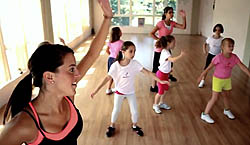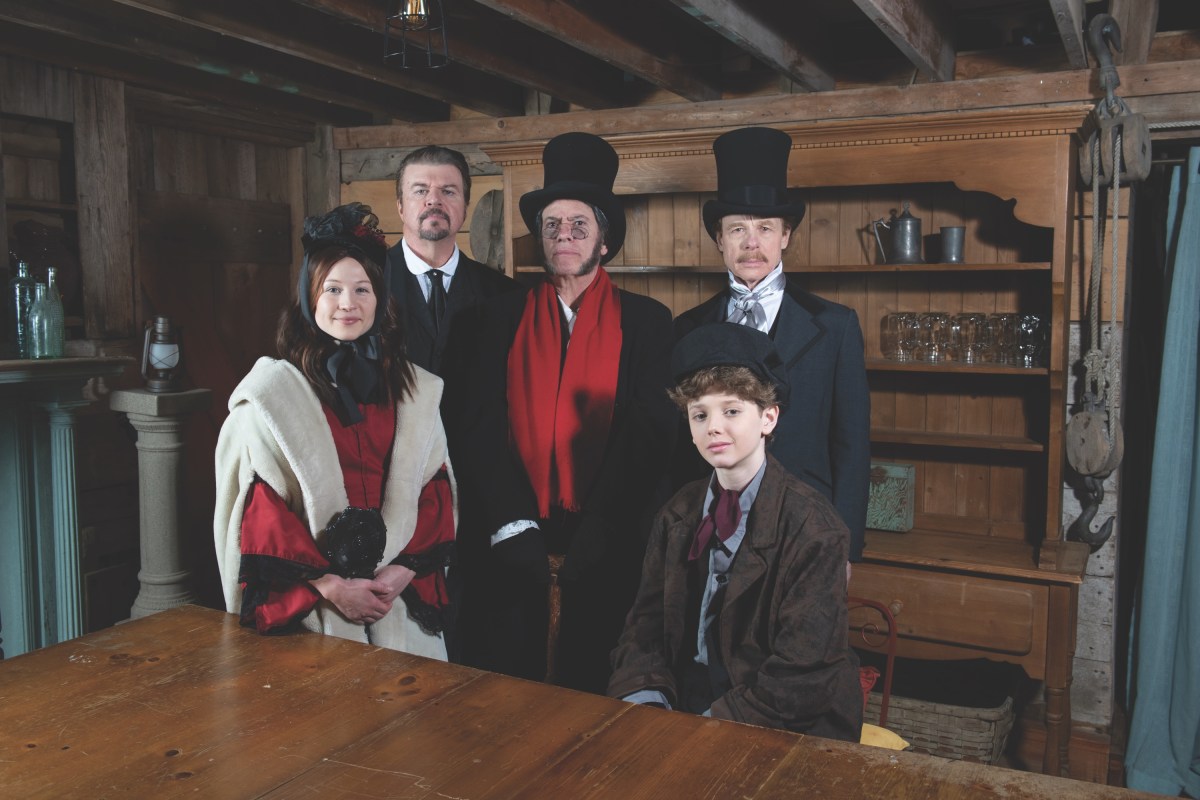Girl power has gained a lot of traction over the past few decades, and for good reason. The idea of intelligent, vivacious young women overcoming everything in their path is a powerful image that inspires girls to strive for the top.
But Tina de Lemps, founder of Femcho, a unique program that combines fitness with building friendships, confidence and emotional health for girls 5-17, thinks girl power isn’t necessarily the be-all-end-all for girls.
“I don’t think it’s enough anymore for a girl to be empowered; a girl has to be empathetic, and caring… you have to show respect for other people and respect their differences in order to be a Femcho kind of woman,” she says.
Instead of just focusing on themselves, girls are encouraged to talk to one another, exchange honest compliments, and put themselves in another’s shoes. A typical session of Femcho features 40 minutes of fitness, often dance fitness (utilizing the girls’ own musical choices) and 20 minutes of girl talk.
There are certainly plenty of fitness programs out there, however for de Lemps, a 35-year veteran in the fitness industry, the inspiration for Femcho came when she realized that girls had a specific need that was largely being ignored. “I noticed that the opportunities that girls have today—which are boundless and endless, for the most part—didn’t really coincide with their self-esteem and their body image,” said de Lemps.
Girls may be more empowered than ever before in certain respects, but while constantly bombarded with images of airbrushed supermodels and surgically enhanced actresses, it’s especially difficult for them to form a realistic body image, and the self-confidence that comes with it.
Helmed by residents of Westbury and Jericho (de Lemps and marketing director Elyse Rosenfeld, respectively) the program started in Nassau County and has begun branching out. Femcho sessions are offered regularly at the Mid-Island Y JCC in Plainview, to area Girl Scout troops and will soon be available at local libraries, including in Syosset and Jericho.

Recently, Femcho was invited by the Brooklyn DA to work with at-risk eighth grade girls, some of whom have been left back several times, been arrested, or have gang affiliations. The expectation was that the girls would be resistant to the program, but according to de Lemps, within five minutes the girls were dancing and talking. She credits the facilitator, professional hip-hop dancer Rachel Jackson, with breaking the ice—sometimes, finding the right facilitator is critically important.
Femcho has also worked with the girls at MercyFirst in Syosset, an organization that works with foster children. When working with girls who are considered at risk, de Lemps says, there’s a greater emphasis on building a foundation of trust, inviting the girls to open up but not assuming or demanding that they will do so.
This approach—the desire to talk with the girls, not at them— may be the most important characteristic that sets the program apart. One girl in Staten Island recently confessed to de Lemps at the end of a session that she initiallly hadn’t wanted to come because she was sick of so-called “wellness” programs that told her what to do, but ended up enjoying Femcho because she felt like they were actually listening to her. De Lemps admits she was moved to tears.
“We call it girl talk for a reason,” she says. “They talk, we listen.”
Femcho also has an anti-bullying module, although the word “bullying” is never used. “Kids are so sick of hearing it, that they tune you out,” explains de Lemps. Instead of focusing on bullying in particular, the group focuses on teaching girls to be compassionate and “conduct themselves with honor.”
Currently, the program is beginning to work with populations of girls with different needs, such as epilepsy, Tourette’s Syndrome, and Down Syndrome. While the girls’ individual needs must be acknowledged (and, in some cases, the facilitators have experience in special needs education) de Lemps is adamant that the program is pretty much the same for any population of girls—after all, everyone wants to be healthy, happy and have good friends. A certification program is also in development, so schools will be able to certify their own educators to teach Femcho, as well as a mentoring program.
Femcho seems to evoke two main responses from adults: “Man, I wish I had this when I was a girl!” and “Why don’t you have a program for my son?” De Lemps may not be able to do anything about the first request, but the second is in the works: a program for boys is on the way, although the name (Boycho? Guycho?) is pending. The boys program may be slightly different from the girl version, with a bit more focus on physical activity (though it will remain strictly noncompetitive), but de Lemps will have some help finding the right balance: her two grown sons, who know a little something about how to be masculine and empathetic at the same time.
“My big goal in life was to bring up boys who would talk about their feelings—and they do.”
To find out more about Femcho, visit www.femcho.com.


























